![]() — หน้าแรก — เกาะติดข่าว
— หน้าแรก — เกาะติดข่าว
ข่าวเศรษฐกิจและธุรกิจประจำสัปดาห์
-
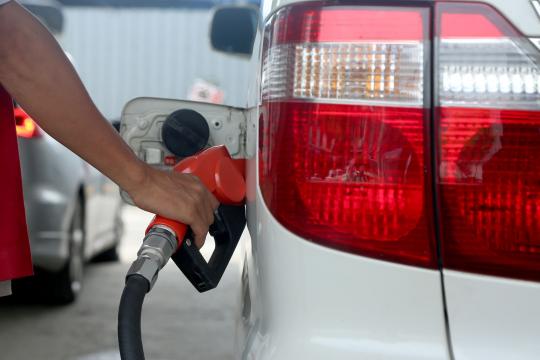
Domestic fuel prices soared over 13 percent within three and a half months due to the foreign currency exchange rate significant increase starting from June 2018
Fuel prices have soared over 13 per cent for more than three and a half months, peaking at Ks4,517 per gallon for 92 Ron, Ks4,744 per gallon for 95 Ron, Ks4,653 per gallon for diesel and Ks4,698 per gallon for premium diesel, according to live rates from fuel stations. In the local market, fuel retail prices are fixed by Myanmar fuel oil import and distribution association are Ks1,025 per liter (Ks4,653 per gallon) for diesel, Ks1,035 per liter (K4,698 per gallon) for premium diesel, Ks995 per liter (Ks4,517 per gallon) for 92 Ron and Ks1,045 per liter (Ks4,744 per gallon) for 95 Ron on September 17. It is increased to 12.63 per cent for diesel, 12.89 per cent for premium diesel, 13.06 per cent for 92 Ron and 12.36 per cent for 95 Ron in compared with the fuel prices in June 3. Global oil prices soared significantly in the second week of October, 2017 and reached to US$51 per barrel in early October, US$55 per barrel in early November, US$58 per barrel in early December, US$61 per barrel in early January, US$64 per barrel in early February, US$68 per barrel in late April, US$72 per barrel on May 21 and US$74 per barrel on July 10. It is declined to US$69 per barrel on August 17 and US$65 per barrel on August 20. It was increased again to over US$70 on August 30 and hovered around US$69 per barrel on September 17. -

The 2nd Myanmar- German renewable energies symposium was held in Yangon to promote renewable energy powering Myanmar’s industrial growth with a special focus on energy obtained from photovoltaic cell and biomass
The 2nd Myanmar-German renewable energies symposium was held at Rose Garden Hotel, Yangon, yesterday. The symposium was organised by the Delegation of German Industry and Commerce in Myanmar (AHK) jointly with “the Energy Solutions made in Germany” initiative of the German Federal Ministry for Economic Affairs and Energy (BMWi), and with support from the Berlin-based Renewables Academy AG (RENAC). The event was attended by local and foreign entrepreneurs, including representatives from eight German public and private companies from renewable energy sector. This year, the symposium was dedicated to renewable energy powering Myanmar’s industrial growth with a special focus on energy obtained from photovoltaic cell and biomass. At the ceremony, German businesses discussed under the titles, “industrial growth with clean energy” and “innovative models for green business growth”, while local and foreign businesses and officials from private renewable energy sector conducted panel discussions under the topics “solar power for Myanmar’s industry, an underutilized resource in Myanmar’s energy mix” and “stepping forward together for green industrial growth.” -
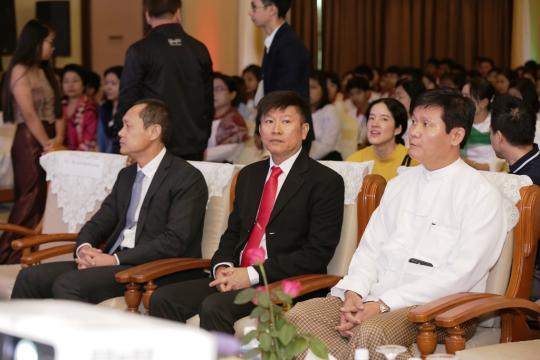
Siam Cement Group (SCG) foresees higher growth in 2019 despite the possibility that this year's growth might fall below target due to inflation and flooding across the country
Despite bright outlook for Myanmar in the coming years, the Siam Cement Group (SCG)’s growth target for the country this year may be hit by inflation and flooding across the country, said Surachai Pomjindachote, the Thai firm’s country director for Myanmar. "For this year, Myanmar is facing floods and inflation, so total growth of the country might fall below target,” he said in an interview. “But in 2019, we foresee higher growth compared to this year’s.” Yet, in the first half of this year, the firm’s Myanmar operations raked in US$152 million in revenue from sales, a 14 per cent increase year on year. SCG in Myanmar owns $366 million in total assets with 5 subsidiaries and approximately 350 employees, according to a report on its second-quarter performance. “Myanmar’s laws and regulations support foreign investment. But uncertainty and challenges remain, such as the Kyat depreciation, natural disasters and some minor problems. This may slow down economic growth,” he said. -

Myanmar will focus on investments in the human factor to keep up and remain relevant in the Fourth Industrial Revolution (4IR)
During her speech concerning Myanmar’s place in the Fourth Industrial Revolution (4IR) at the World Economic Forum on Asean in Hanoi yesterday, State Counselor Daw Aung San Suu Kyi stressed the value of human skills and talent in ensuring the country remains relevant and on par with its neighbours in the years to come. According to its Wikipedia entry, the 4IR is the fourth major industrial era since the initial Industrial Revolution in the 18th century. The 4IR is marked by technology breakthroughs in many fields including robotics, artificial intelligence, the Internet of Things and 3D printing, all of which are disrupting entire industries and rendering some obsolete. “Yet, data show that 50 percent -75pc of new technology implementations have failed regarding quality and reliability due to the neglect of the human factor. In Myanmar, we cannot afford to fail because we are already so far behind,” Daw Aung San Suu Kyi said. -
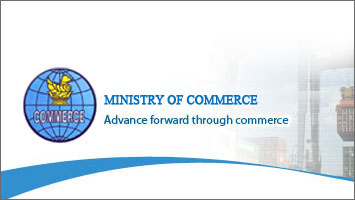
Ministry of Commerce is now training future commercial attaches to send to countries which have strong potential for trade with Myanmar in the coming months
IN A BID to boost trade with foreign countries, Myanmar will appoint new commercial attaches in more countries in the coming months, said a government official. Khin Maung Lwin, assistant secretary and spokesperson of the Ministry of Commerce, said the ministry is currently training some officials to be sent to foreign countries which have strong potential for trade with Myanmar. “We hope to replace the existing commercial attaches with new ones by December this year, and have planned to appoint commercial attaches for four new destinations including Africa,” he said. The official lauded the existing commercial attaches’ performance but said they must be replaced as their term lasts only three years, the same tenure as that of other attaches working for the Ministry of Foreign Affairs. -
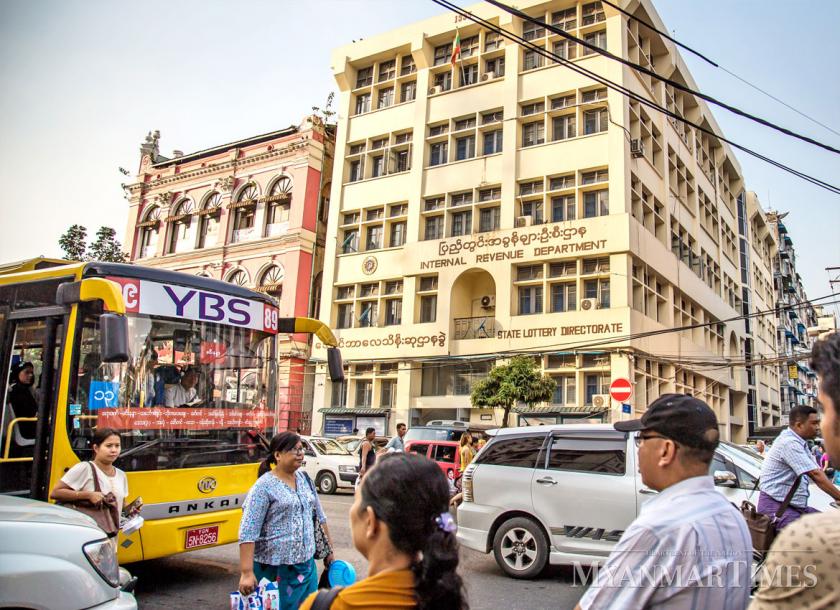
Myanmar businesses urged the government for lower taxes to alleviate pressure from the rising dollar exchange rate and slowing economy in recent months
Myanmar businesses are urging the government to lower the country’s tax rates to alleviate pressure from the rising dollar exchange rate and slowdown in demand in recent months. According to the quarterly Business Sentiment Survey by the Union of Myanmar Federation Chamber of Commerce and Industry (UMFCCI) released last month, Myanmar’s high taxation rates are among the top reasons for the weakening economy. The survey, which revealed a 25 percent year-on-year drop in overall business confidence, also showed that three out of the five reasons for the lack of confidence in economic growth were related to taxation. During a meeting between Daw Aung San Suu Kyi in late August, business leaders, including UMFCCI chair U Zaw Min Win and U Shein Win, chair of the Myanmar Construction Entrepreneurs Association (MCEA), urged the State Counsellor to reduce Myanmar’s existing tax and interest rates to draw more foreign direct investments (FDI) to the country. The Directorate of Investment and Company Administration (DICA) is expecting US$5.8 billion in FDI in 2018-19, which is unchanged from the previous 2017-18 year ended March 31, during which Myanmar received $5.7 billion in FDI for 222 projects. In comparison, the country received $6.6 billion for 135 investments in 2016-17 -
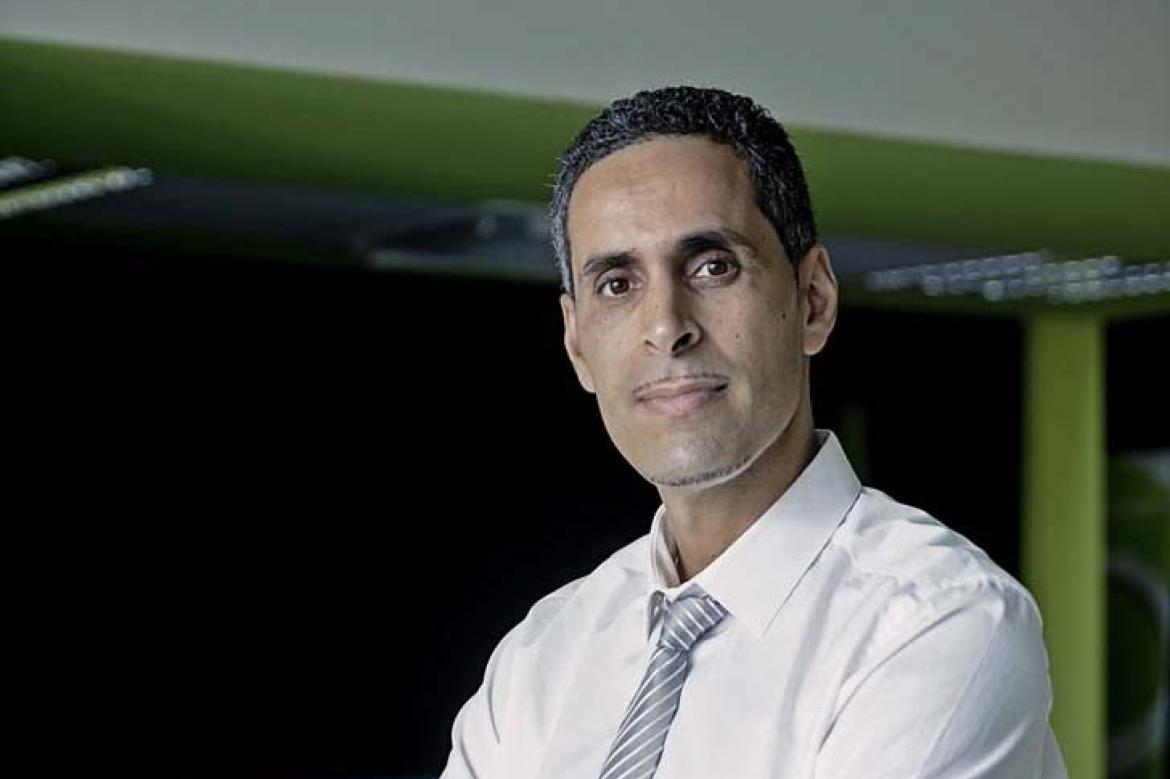
Exclusive interview with Mr. Yacine Chouabia, Business Development Director for Asia Électricité de France, on the 1,050 megawatt Shweli 3 hydropower plant project in northern Shan State
In December 2015, state-owned utility company Électricité de France signed a memorandum of understanding with the government for the 1,050-megawatt Shweli-3 hydropower project in northern Shan State. After several years of policy uncertainty, the government is keen to move ahead with hydropower projects and at a power sector working group meeting on August 8, Minister for Electricity and Energy U Win Khaing said it would soon issue notices to proceed to several developers, including EDF. Mr Yacine Chouabia, the company’s business development director for tells Frontier’s Thomas Kean about EDF’s plans for Shweli-3, which could see the size of the project scaled back. -
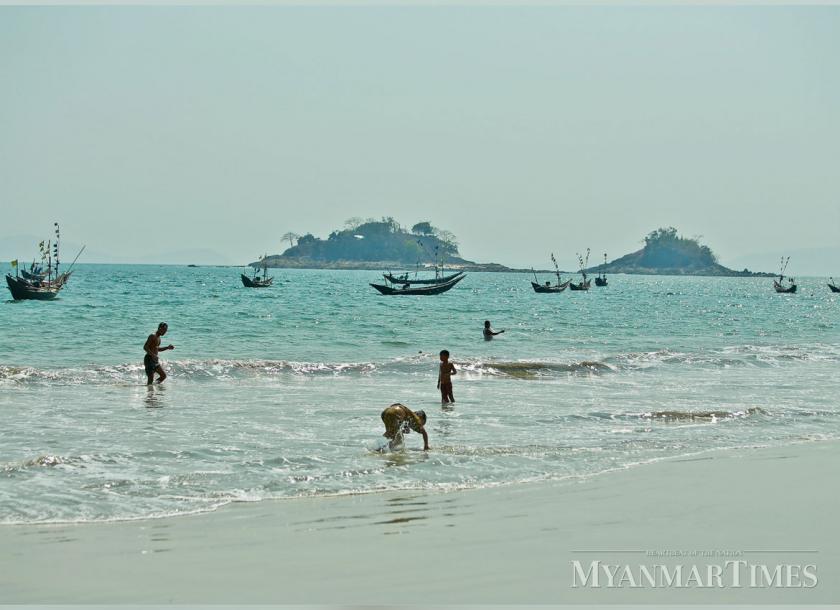
Myanmar Government authorities are exploring ways to resume the development of Dawei Special Economic Zone (SEZ) and Kyaukphyu SEZ projects soon (U Khin Maung Cho, Union Minister for Industry)
Arrangements are being made for development of the Dawei Special Economic Zone (SEZ) and Kyaukphyu SEZ projects to resume, said U Khin Maung Cho, Minister for the Ministry of Industry, on behalf of the Ministry of Commerce at the Pyidaungsu Hluttaw. The government has been exploring ways to restart development of the US$8 billion Dawei SEZ, which has been suspended since 2013. This came after developer Italian-Thai Development Company (ITD) withdrew from a 2008 agreement to develop Dawei SEZ due to financial constraints. There were also complaints from the local community regarding lack of adequate compensation for the construction and potential pollution and disruption caused as result of developing the SEZ. ITD withdrew from the concession agreement in 2015. In 2015, Thailand offered Myanmar a soft loan of 4.5 billion baht at an interest rate of 0.1pc to upgrade a two-lane tarred road from Dawei SEZ to Htee Khee, near the Thai border. Construction work is currently under way, U Khin Maung Cho said. -
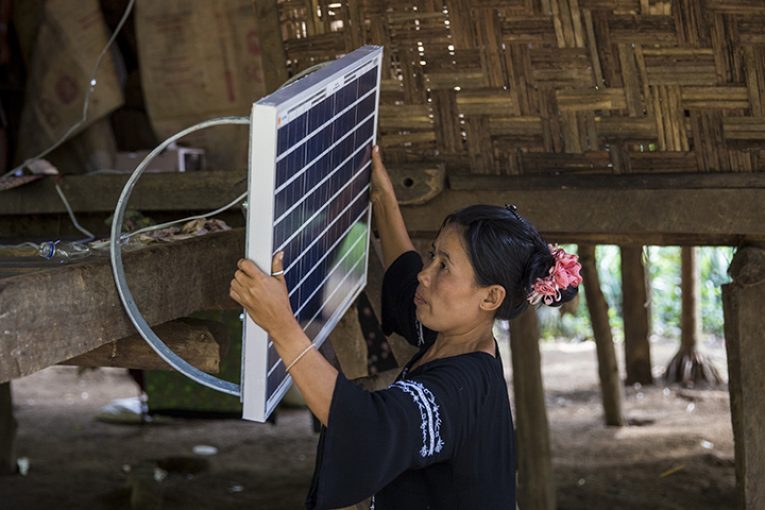
World Wildlife Fund- Myanmar (WWF-Myanmar) signed a MOA with Kayin State Government to support renewable energy by assisting investors to enter the energy sector and producing electricity with a lower price in Kayin State
The World Wildlife Fund-Myanmar (WWF-Myanmar) signed a Memorandum of Agreement (MoA) with Kayin State government for renewable energy support in Kayin State at state government office on 10 September, according to WWF-Myanmar. According to the MoA, WWF-Myanmar will conduct surveys to explore possible places to produce renewable energy, assist in connecting with investors to enter into renewable energy sector and in producing electricity at a lower price. -
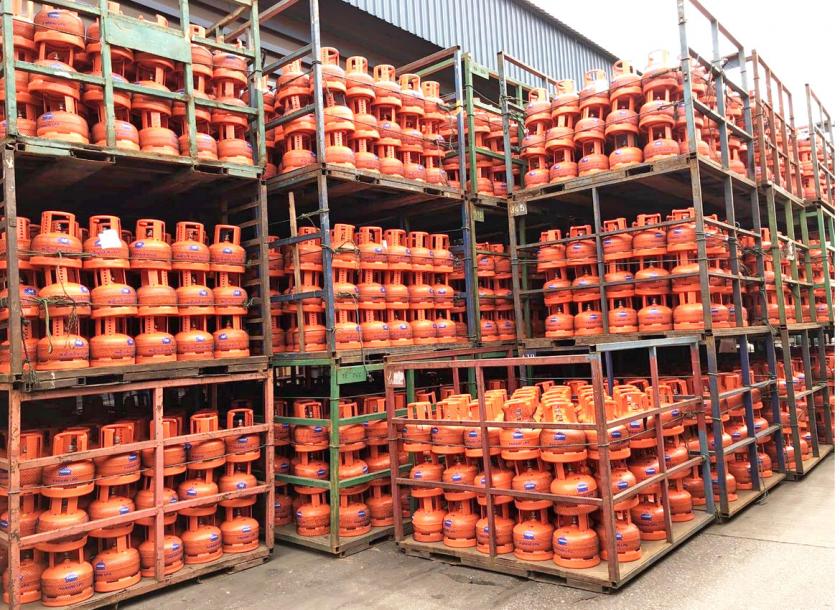
A local firm, Parami Energy Group of Companies will distribute liquefied petroleum gas (LPG) in Myanmar under its own brand
Parami Energy Group of Companies, a local firm, will distribute liquefied petroleum gas (LPG) in Myanmar under its own brand, CEO U Pyi Wa Tun told The Myanmar Times. Parami Energy, one of the two firms permitted by the government to import and sell LPG in the country, commenced wholesale distribution of LPG after winning the tender to hire state-owned Thanlyin refinery in 2017. Myanmar does not have the infrastructure needed to produce its own LPG. Going forward, the company will only distribute LPG under the Parami brand, he said. Currently, Myanmar imports around 5,000 tonnes to 7,000 tonnes of LPG. This is enough to cover just 5 percent of the total number of households in the country. Much of the imported LPG is now used for commercial purposes, such as in hotels, restaurants, tea shops and factories. In fact, LPG utilisation in Myanmar is the currently lowest among all the ASEAN countrie. The average household consumption of LPG in ASEAN is 90pc of total households and in Thailand, it is 95pc.
เกาะติดข่าว
Copyright © 2014 Business Information Center All Rights Reserved.







